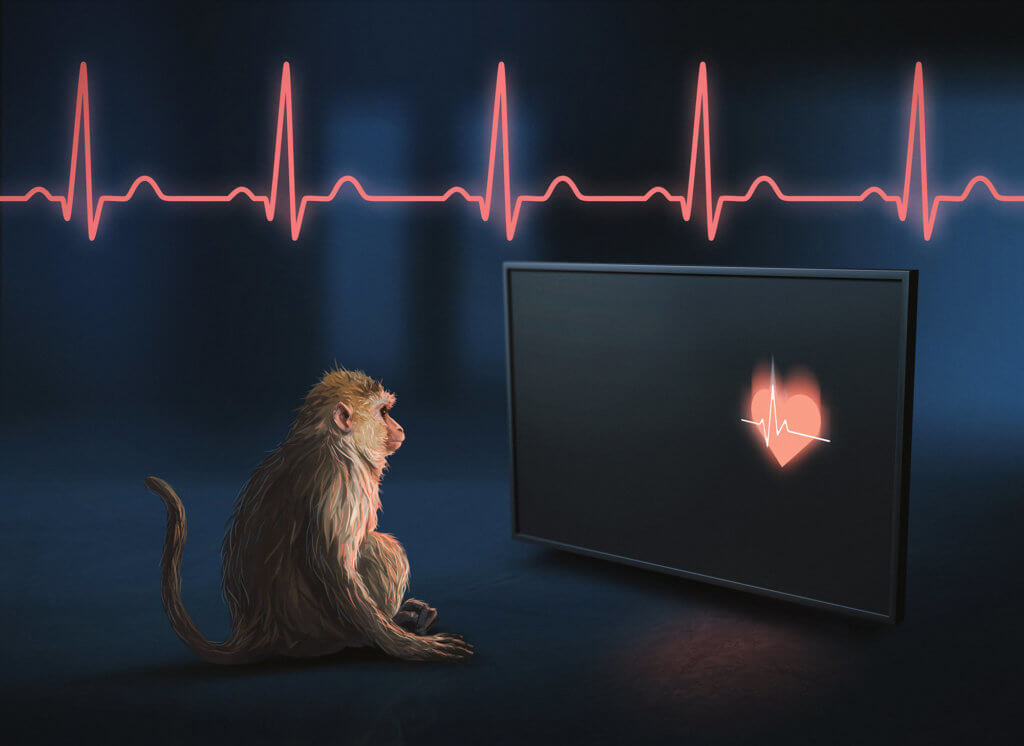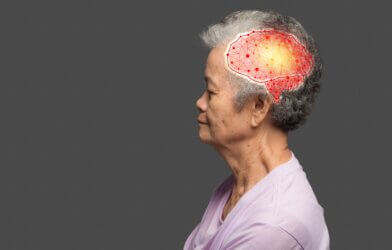Rhesus monkeys can perceive their own heartbeats, a discovery that could lead to breakthroughs in treating dementia in humans, according to a new study. Scientists say it provides an “important model” for future psychiatric research into depression, anxiety and Alzheimer’s disease.
The groundbreaking study was conducted by researchers at Royal Holloway, University of London, and the the California National Primate Research Center at the University of California, Davis.
Study authors say they have created a first-of-its-kind animal model of “interoception,” or the ability to sense the internal state of one’s body. This happens when we feel our heart racing or breathing quicken.
The team monitored four rhesus monkeys for the experiment. Each monkey sat in front of an infrared eye tracker displaying stimuli which bounced and generated a sound either synchronously or asynchronously (faster and slower) with the monkeys’ heartbeats. Such an experiment capitalizes on the fact that monkeys and human babies look for longer at things that they find surprising or are unexpected.
All four monkeys spent more time looking at the stimuli presented out of rhythm with their heartbeats compared to stimuli in rhythm with their heartbeats. This suggests that they sensed that the out of rhythm stimuli were surprising based on the expected rhythm of their heartbeats.
Researchers say that the results are consistent with evidence previously shown in human infants using a similar method. The study provides the first behavioral evidence that rhesus monkeys have a human-like capacity to perceive their heartbeats and have an interoceptive sense.
“Interoception, or the self-monitoring of your physiological systems, is involved in all aspects of human life,” says Dr. Eliza Bliss-Moreau, an associate professor of psychology at UC Davis, in a statement. “The ability to sense our internal state can indicate issues within the body that require our attention. Impaired interoceptive awareness is associated with less capacity to regulate emotions and increased susceptibility to mental health issues such as anxiety and depression.”
“Interoception is hugely important for emotion regulation and mental health in adults, and yet we know very little about how it develops in early infancy or comes to be across evolutionary time,” says co-author Manos Tsakiris, an affective scientist from the Department of Psychology at Royal Holloway. “The work we present here represents a first successful attempt to fill these gaps.”
The researchers said that deficits in interoception have also been linked to neurodegenerative diseases such as Alzheimer’s.
“This model will be used in future translational studies of neurodegenerative diseases, including Alzheimer’s,” says Dr Bliss-Moreau. “If we can measure interoception, we can track it as a behavioural biomarker of disease progression.”
She adds that the study provides insights into how the rhesus macaque model may be used to further our understanding of brain and body function.
“A next step is to study the mechanism by which interoception may be involved in different psychiatric and neuropsychiatric conditions,” adds Tsakiris.
The findings are published in the journal Proceedings of the National Academy of Sciences.
Article by South West News Service writer Stephen Beech












